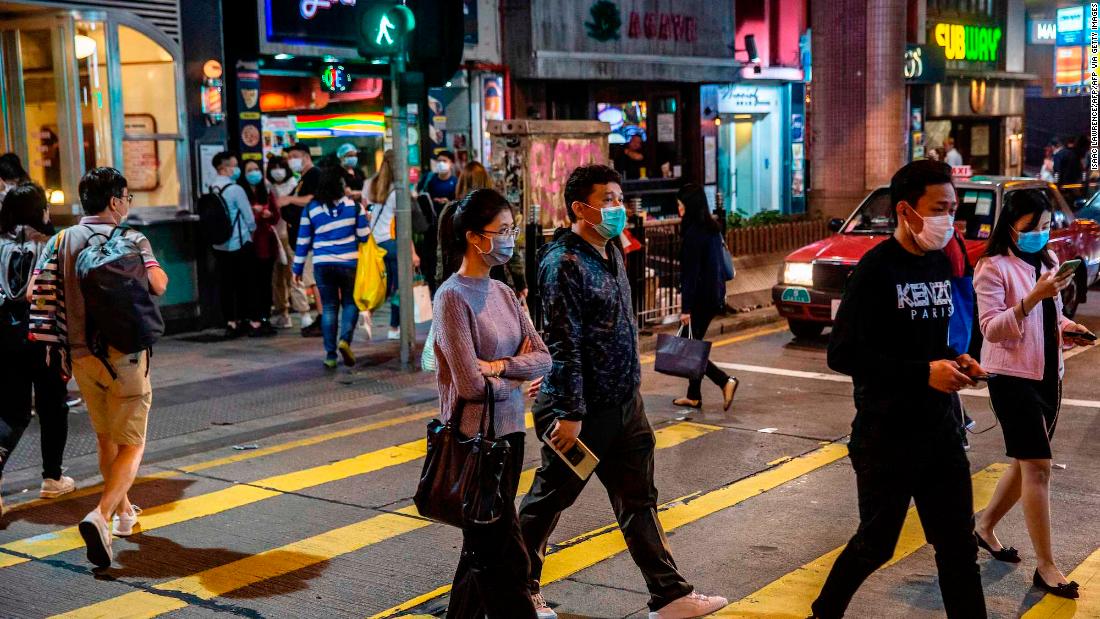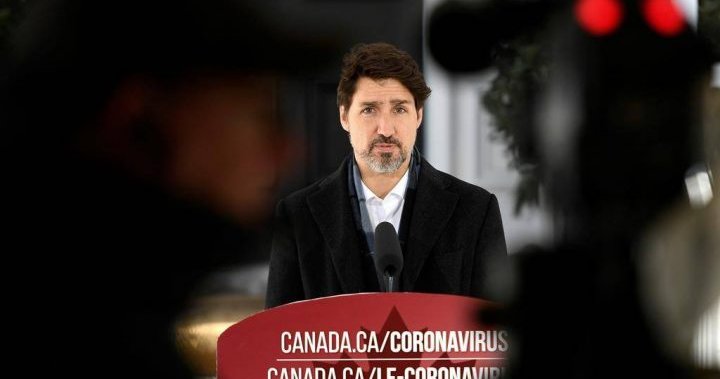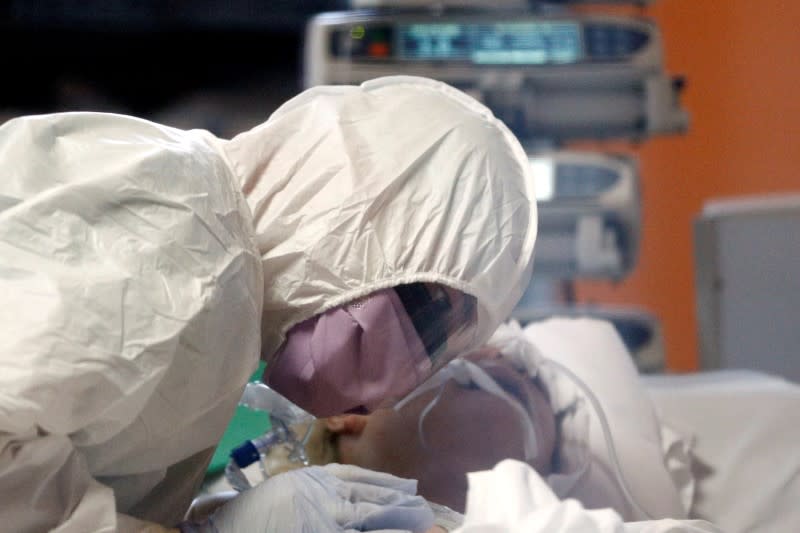|
|
|
You are using an out of date browser. It may not display this or other websites correctly.
You should upgrade or use an alternative browser.
You should upgrade or use an alternative browser.
- Thread starter AlvinofDiaspar
- Start date
Richard White
Senior Member
Riiiight.... he may be willing to forego social distancing but the moment he tries and things get out of control he will see the error of his ways. I highly doubt other countries will open their countries to Americans if he even thinks of doing this.
The US is nowhere near the top of their curve; if he lifts restrictions now, it's not going to be pretty.
Rimsky44
Active Member
The US is nowhere near the top of their curve; if he lifts restrictions now, it's not going to be pretty.
Stable genius would also likely be killing off his own support base (by age, although maybe the rural areas aren't impacted as much).
7 charts show who propelled Trump to victory
Exit polls, put together by Edison Research for the National Election Pool, surveyed more than 24,000 voters to find out how people voted.
AlvinofDiaspar
Moderator
Stable genius would also likely be killing off his own support base (by age, although maybe the rural areas aren't impacted as much).

7 charts show who propelled Trump to victory
Exit polls, put together by Edison Research for the National Election Pool, surveyed more than 24,000 voters to find out how people voted.www.businessinsider.com
On the contrary - rural hospitals tend to be weaker than urban ones.
If I maybe impolite - Trump is F****D in the head.
AoD
AlbertC
Superstar
Hong Kong demonstrating the risks of relaxing and letting their guard down too soon:

 www.cnn.com
www.cnn.com
Only a week ago, Hong Kong seemed like a model for how to contain the novel coronavirus, with a relatively small number of cases despite months of being on the front lines of the outbreak.
That was in large part thanks to action taken early on, while cases were spreading across mainland China, to implement measures that are now familiar throughout the world: virus mapping, social distancing, intensive hand-washing, and wearing masks and other protective clothing.
Hong Kong was proof that these measures worked, with the city of 7.5 million only reporting some 150 cases at the start of March, even as the number of infections spiked in other East Asian territories like South Korea and Japan, and spread rapidly across Europe and North America.
Now, however, Hong Kong is providing a very different object lesson -- what happens when you let your guard down too soon. The number of confirmed cases has almost doubled in the past week, with many imported from overseas, as Hong Kong residents who had left -- either to work or study abroad, or to seek safety when the city seemed destined for a major outbreak earlier this year -- return, bringing the virus back with them.

Hong Kong appeared to have the coronavirus under control, then it let its guard down
As the sudden surge in cases in Hong Kong shows, quarantines and social distancing must continue well beyond the initial wave of cases, if another round of infections is to be avoided.
Only a week ago, Hong Kong seemed like a model for how to contain the novel coronavirus, with a relatively small number of cases despite months of being on the front lines of the outbreak.
That was in large part thanks to action taken early on, while cases were spreading across mainland China, to implement measures that are now familiar throughout the world: virus mapping, social distancing, intensive hand-washing, and wearing masks and other protective clothing.
Hong Kong was proof that these measures worked, with the city of 7.5 million only reporting some 150 cases at the start of March, even as the number of infections spiked in other East Asian territories like South Korea and Japan, and spread rapidly across Europe and North America.
Now, however, Hong Kong is providing a very different object lesson -- what happens when you let your guard down too soon. The number of confirmed cases has almost doubled in the past week, with many imported from overseas, as Hong Kong residents who had left -- either to work or study abroad, or to seek safety when the city seemed destined for a major outbreak earlier this year -- return, bringing the virus back with them.
salsa
Senior Member
The province has released their list of essential services that will remain open.

 s3.amazonaws.com
s3.amazonaws.com

List of Essential Workplaces
For the purposes of this order, businesses include any-for-profit, non-profit or other entity providing the goods and services described herein. This does not pr...
Northern Light
Superstar
Hong Kong demonstrating the risks of relaxing and letting their guard down too soon:

Hong Kong appeared to have the coronavirus under control, then it let its guard down
As the sudden surge in cases in Hong Kong shows, quarantines and social distancing must continue well beyond the initial wave of cases, if another round of infections is to be avoided.www.cnn.com
Only a week ago, Hong Kong seemed like a model for how to contain the novel coronavirus, with a relatively small number of cases despite months of being on the front lines of the outbreak.
That was in large part thanks to action taken early on, while cases were spreading across mainland China, to implement measures that are now familiar throughout the world: virus mapping, social distancing, intensive hand-washing, and wearing masks and other protective clothing.
Hong Kong was proof that these measures worked, with the city of 7.5 million only reporting some 150 cases at the start of March, even as the number of infections spiked in other East Asian territories like South Korea and Japan, and spread rapidly across Europe and North America.
Now, however, Hong Kong is providing a very different object lesson -- what happens when you let your guard down too soon. The number of confirmed cases has almost doubled in the past week, with many imported from overseas, as Hong Kong residents who had left -- either to work or study abroad, or to seek safety when the city seemed destined for a major outbreak earlier this year -- return, bringing the virus back with them.
Expert epidemiologists have suggested that it simply isn't possible to sustain quarantine-like conditions for months on end.
They expect that this will involve a clamp-down, then relaxation, then a second wave, then a second clampdown and so on..........
For between 10 months- 14 months until we either reach 70% heard immunity or we have a vaccine at scale.
That seems credible to me.
I'm entirely open to different ideas.
I've made the citations in previous posts to support the above.
To be clear, I'm in favour of doing what we can to minimize deaths; and am personally prepared to make sacrifices to that end.
But when we're looking at government policy, we have to consider what the majority can sustain.
That should not be mistaken for accepting the misguided BS from Trump, in the least.
Videodrome
Senior Member
Proposed Federal Bill to give special powers to the finance minister to unilaterally change, lower or raise tax rates without approval of parliament.

Liberal bill on coronavirus would give feds power to spend, tax without parliamentary approval - National | Globalnews.ca
A small number of MPs from all parties are set to debate the coronavirus support bill on Tuesday.globalnews.ca
That is very eyebrow-raising.
That's testing the outer limits of Constitutionality and seems, to be charitable, highly questionable.
Total usurpation of Parliament.
Which ended up being an early draft and has been pulled back.
I am so glad we closed the border given Trump wanting to reopen everything in a few weeks.
Richard White
Senior Member
Which ended up being an early draft and has been pulled back.
If they want to have the ability to spend as required they need to invoke the federal emergencies act plain and simple. Anything less would be questionable at best.
MetroMan
Senior Member
These are the construction types that are allowed to proceed.

So, essentially all construction is allowed to proceed?
So, essentially all construction is allowed to proceed?
Richard White
Senior Member
These are the construction types that are allowed to proceed.
View attachment 237728
So, essentially all construction is allowed to proceed?
The way I read that the Crosstown is currently on hold. Technically it is not required to ensure safe and reliable operations of critical infrastructure. It is currently being built and in no way is it operational.
tripwire
Active Member
Yeah I was pretty confused ... I mean #28 is so broad that it basically covers everything?
Admiral Beez
Superstar
It looks like pretty much every business could be deemed essential. The owners will require their staff to keep coming in, until they drop.The province has released their list of essential services that will remain open.

List of Essential Workplaces
For the purposes of this order, businesses include any-for-profit, non-profit or other entity providing the goods and services described herein. This does not pr...s3.amazonaws.com
Here’s another source for the list https://www.iheartradio.ca/newstalk-1010/news/what-s-an-essential-business-1.11097417
AlbertC
Superstar
Italian coronavirus cases likely "10 times higher than reported"
Reuters
March 24, 2020, 6:35 am
ROME (Reuters) - The number of cases of coronavirus in Italy is probably 10 times higher than the official tally of almost 64,000, the head of the agency that is collating the data said on Tuesday.
Latest figures show 6,077 people have died from the infection in barely a month, making Italy the worst-affected country in the world, with close to double the number of fatalities in China, where the virus emerged last year.
However, testing for the disease has often been limited to people seeking hospital care, meaning that thousands of cases have certainly gone undetected.
"A ratio of one certified case out of every 10 is credible," Angelo Borrelli, the head of the Civil Protection Agency, told La Repubblica newspaper, indicating he believed as many as 640,000 people could have been infected in the country.
He said the biggest difficulty facing Italy was a shortage of masks and ventilators - a problem that has dogged the health system since the contagion first surfaced in the wealthy northern region of Lombardy on Feb. 21.
Italy is trying to import stocks from abroad, but Borrelli said nations like India, Romania, Russia and Turkey had halted such sales. "We are contacting the embassies, but I fear no more masks will be arriving from abroad," he said.

 news.yahoo.com
news.yahoo.com
Reuters
March 24, 2020, 6:35 am
ROME (Reuters) - The number of cases of coronavirus in Italy is probably 10 times higher than the official tally of almost 64,000, the head of the agency that is collating the data said on Tuesday.
Latest figures show 6,077 people have died from the infection in barely a month, making Italy the worst-affected country in the world, with close to double the number of fatalities in China, where the virus emerged last year.
However, testing for the disease has often been limited to people seeking hospital care, meaning that thousands of cases have certainly gone undetected.
"A ratio of one certified case out of every 10 is credible," Angelo Borrelli, the head of the Civil Protection Agency, told La Repubblica newspaper, indicating he believed as many as 640,000 people could have been infected in the country.
He said the biggest difficulty facing Italy was a shortage of masks and ventilators - a problem that has dogged the health system since the contagion first surfaced in the wealthy northern region of Lombardy on Feb. 21.
Italy is trying to import stocks from abroad, but Borrelli said nations like India, Romania, Russia and Turkey had halted such sales. "We are contacting the embassies, but I fear no more masks will be arriving from abroad," he said.

Italian coronavirus deaths jump, dashing hopes that worst was over
Fatalities in Italy from coronavirus have surged in the last 24 hours, the Civil Protection Agency said on Tuesday, dashing hopes the epidemic in the world's worst hit country was easing after more encouraging numbers in the previous two days. Italy has seen more fatalities than any other...




